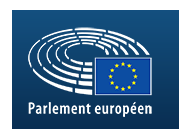Document type : Written answer from the European Commission
Authors: Question: Annika Bruna (ID). Answer: Ms Kyriakides on behalf of the European Commission
Question: The illegal trade in wild animals, which are usually sold as companion animals, is driving the erosion of biodiversity throughout the world by increasing the threat of extinction faced by thousands of species.
Sadly, the trade is being perpetuated by European consumers, particularly through online purchases, with the following being disregarded:
- the illegal nature of the trade;
- its impact on biodiversity;
- the way in which the animals are captured and transported, which often results in their death;
- the danger of zoonoses, i.e. the transmission of diseases from wild animals to humans, the most recent example of which is COVID-19.
I would like to ask the Commission the following:
- Does it encourage companies selling online to ban the sale of wild animals in their terms of use?
- Does it encourage the development of programmes to detect and spotlight fraudulent advertisements, i.e. advertisements which are prohibited by national legislation and by the Convention on International Trade in Endangered Species of Wild Fauna and Flora (CITES)?
- Finally, does it support campaigns aimed at informing consumers about the impact of this trade on biodiversity and the risks they take by purchasing wild animals?
Answer: Companies operating in the Union are bound by the EU wildlife trade regulations(1), which implement the Convention on International Trade in Endangered Species of Wild Fauna and Flora (CITES). They regulate — and when necessary, prohibit — trade in endangered animals, online and offline. EU Member States are enforcing those regulations and are making thousands of seizures of illegally traded wildlife every year, including live animals sold online(2).
From its Internal Security Fund — Police(3), the EU has been funding a project on ‘Combatting wildlife cybercrime’ since 2019(4). The project aims to disrupt and deter criminals and their networks trafficking wildlife in, or via, the EU using the Internet. Under the guidance of an advisory group including the Commission, and working with Interpol, the Belgian Customs authorities and a group of civil-society organisations, the project has inter alia delivered training for enforcement staff from Member States and promoted guidelines on best practices to detect and investigate wildlife cybercrime. The project is also engaging online technology companies in the EU to help them prevent traffickers from exploiting their services, by developing information materials and facilitating the exchange of best practices.
From the same Fund, the EU has funded a report by Interpol for law enforcement practitioners on the ‘European Union’s best practices in fighting wildlife crime linked to the Internet’(5).
Finally, the Commission has not supported so far campaigns to inform consumers about these issues.






